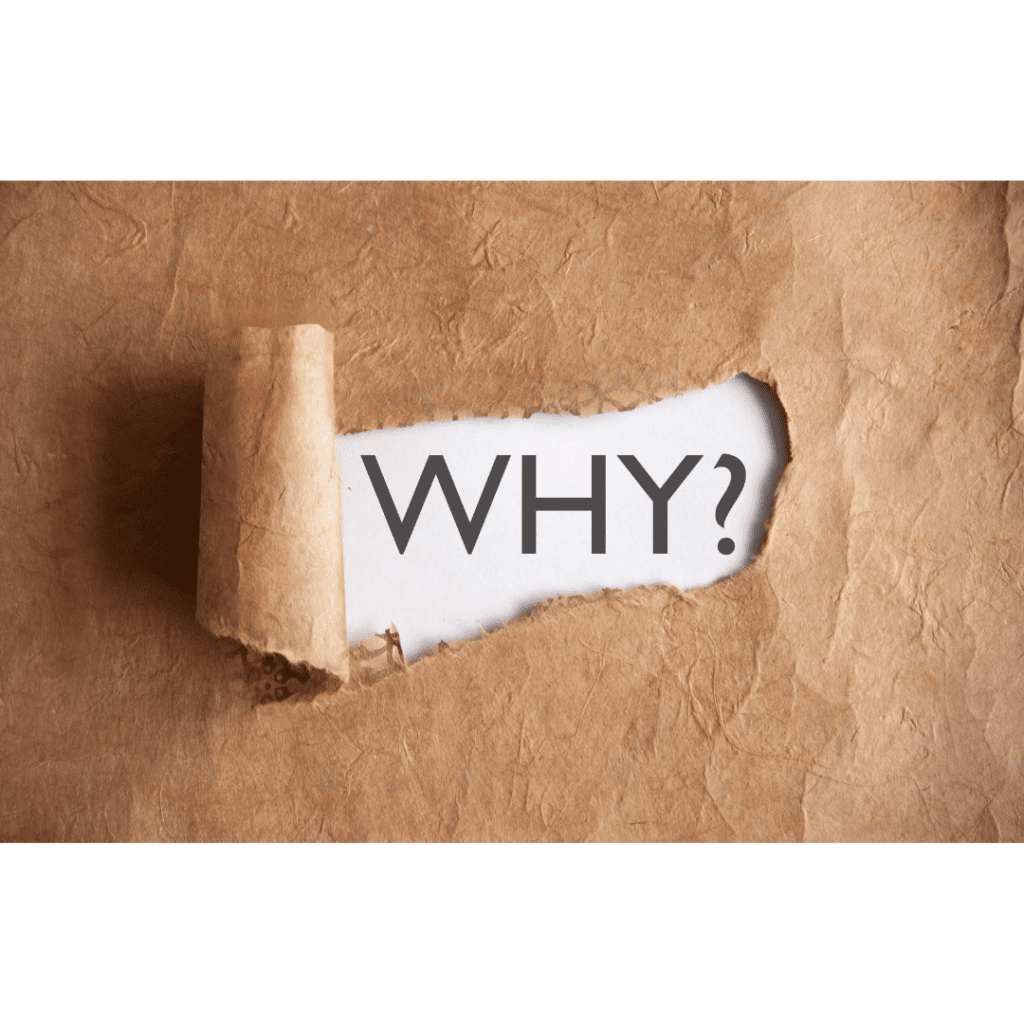Friendly Reminder: A Weekly Reflection from the QLC
Know Your Why
By Andy Stanton-Henry
I was recently on a “soul care call” with several other Quaker leaders. Among other topics, we discussed a recent article called “Departure: Why I Left the Church.” It’s written by a pastor who is leaving not only his church but pastoral ministry altogether. It went viral, clearly hitting a nerve. Many clergy felt it articulated the chronic stressors and unrealistic expectations of their jobs, resulting in the “Great Resignation” of pastors across denominations.
(There were critiques of the article, as well. Some pointed out that it’s more of a cautionary tale in his context that was universalized to all churches. Others noted that his “buy my book” conclusion to the post undermined his credibility.)
Not every aspect of the ex-pastor’s critique applies to Quaker ministry, but the Friends pastors in our group resonated with much from the piece. They wished these challenges were better understood by Friends in the pews.
On one side of the Quaker world you will find folks who rely on pastors, often with high expectations and low salaries. On the other side of Quakerism are those who see pastoral leadership in any form as a betrayal of the Quaker stance against “hireling ministry.” There is much more to be done in creating greater understanding and healthier systems.
After a time of sharing these painful and pervasive challenges, the facilitator decided to end the call with a question.
With all these issues, why do you still do it?
It’s a great question.
The answers ranged from “It’s the only job I’m qualified to do” to “We get a front-row seat to witness the sacred in people’s lives.”
Here was my answer:
There’s the good, old-fashioned sense of call. But also:
I have a working thesis that the local church/meeting is a basic unit for social change and spiritual formation. Sometimes I don’t have a lot of hope in the church or in Quakerism. But I don’t have a lot of hope in the government or corporations. So, like Rufus Jones, “I pin my hopes to small circles and quiet processes, in which vital and transforming events take places.”
As my colleague Della Stanley-Green likes to say about the Society of Friends: “God is not done with us if we are not done with God.”
I feel fine about my response. But I’m still pondering the question – for myself and for other Quaker leaders.
Whether you are a pastor, superintendent, secretary, clerk, activist, healer, parent, or anything else, you face real vocational challenges. Sometimes they seem insurmountable.
Why do you keep going?
Why do you get up every morning and do it again?
In his book, Start With Why, Simon Sinek writes that “Leadership is the ability to rally people not for a single event, but for years.”
How do we rally people “for years”?
How do we live out our vocations as a “long obedience in the same direction”?
Spiritual depth, friendship and support, healthy rhythms – yes.
Systemic change – yes.
But also:
We know our why.
We have a deep and clear sense of purpose.
When critique or praise comes our way, we stay grounded in our why. We dig deep to find the deep why beneath the array of shallow motives and dominating expectations.
To make it for the long haul, you need to know your “why.”
We also need to call people to dig deep for their why.
People join Quaker meetings, churches, and organizations for a range of reasons.
This diversity can be a strength. It can also be our downfall.
After yet another Quaker split, one yearly meeting recently claimed that they could no longer continue in their affiliation because they were not “equally yoked.”
I wonder: How “equal” does our yoke have to be to stay together?
How much agreement – theologically, culturally, missionally – do we need to keep working together?
This is a live and hard question. But it’s important for us all to discern our why and see if they have enough commonality to bear the differences.
We need a certain degree of unity, to be sure.
But we don’t need uniformity. In fact, a certain breadth of “whys” can make us…wise. (See what I did there?)
If our unity has a spiritual grounding, we never forget that our individual “why” is caught up in the Great Why in the heart of God. Our whys are part of the eternal project of healing and transformation at work in the universe. In my tradition, we call it the “Reign of God” or “the Peaceable Kingdom.”
The claim that we get to be partners, or Friends, of God in the world is a pretty amazing source of inspiration. If we can’t find a purpose somewhere in that claim, we are hopeless.
Each of us can find a why inside that Why.
Our work is to make it plain and particular for our people and place.
I invite you to ponder: What is your why?
What drew you to this work and these relationships?
I invite you to ask Friends in your meeting, church, or organization: What is your why?
Why do you invest your time, energy, and commitment in this venture?
And if you are feeling bold, ask God (however you commune and communicate with that Reality): What is your why?
What are you up to in my little corner of creation and why do You care?
